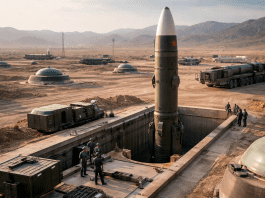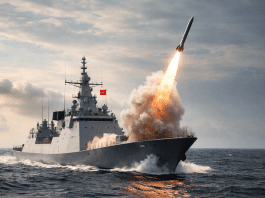China and Thailand will soon embark on their annual joint air force exercise, Falcon Strike 2024. The drill, scheduled from August 18-29, will be held at the Udorn Royal Thai Air Force Base in Udon Thani province, northeastern Thailand.
Falcon Strike 2024: Purpose and Participants
The Chinese Ministry of National Defence announced that it would send aircraft and special operations forces to the exercise. This collaboration aims to enhance the combat skills of troops from both countries and deepen practical exchanges and cooperation.
Falcon Strike has been held annually since 2015, except during the pandemic years of 2020 and 2021. The 2024 event marks the seventh joint air force exercise between China and Thailand.
Historical Context: Thailand’s Shift in Military Alliances
The Udorn Royal Thai Air Force Base has historical significance. It was once a United States Air Force base, reflecting Thailand’s long-standing alliance with the US. Thailand is the oldest US treaty ally in the region and the only one on the Southeast Asian mainland.
However, the relationship between Thailand and the US strained following the 2014 military coup in Thailand. The US quickly condemned the coup, reducing military cooperation and suspending $3.5 million in military aid. This decline in US-Thailand defence relations created an opportunity for China to step in.
Growing China-Thailand Military Cooperation
Since 2014, Thailand has increasingly bolstered military ties with China. The two countries have expanded their joint exercises significantly. In 2017, they conducted only one joint drill, but by last year, they had completed three exercises covering air, land, and sea operations.
Thailand has also made several arms deals with China, including purchases of submarines, anti-ship missiles, air defence systems, and armoured vehicles. In May, the Thai navy announced plans to resume the acquisition of S26T attack submarines from China, following delays in the 2017 contract due to engine delivery issues. However, the deal remains uncertain, especially as China has reportedly offered the same submarines to Indonesia.
Recent Developments in Joint Military Exercises
Despite the increase in China-Thailand military cooperation, experts note that these exercises are less complex than Thailand’s joint drills with the US. It is still unclear which aircraft will be used in the upcoming Falcon Strike 2024. However, last year’s drills saw China deploying various aircraft, including the Shaanxi KJ-500 early warning and control aircraft, the J-10C fighter jet, the JH-7A fighter-bomber, and the navy’s J-11B fighter jets.
In contrast, Thailand chose not to deploy its US-built F-16 fighters last year. Instead, it sent the Saab JAS 39 Gripen fighter, the Alpha Jet, and the Saab 340 early warning aircraft.
China’s Broader Defence Strategy in Southeast Asia
China has not limited its military engagement to Thailand. It is strengthening defence ties with several Southeast Asian nations. Recently, China and Indonesia concluded their first “2+2” military and diplomacy talks. The two countries agreed to hold joint military training and reaffirmed their commitment to maintaining regional security and stability, preventing terrorism, and addressing transnational crimes.
In addition to Indonesia, China has staged joint exercises with Cambodia and Laos this year. In May, around 1,315 Cambodian and 760 Chinese military personnel participated in a 15-day ground and sea exercise, involving 14 ships. In July, a two-week exercise with Laos saw the participation of 900 Laotian and 300 Chinese troops.
Conclusion: A Strategic Partnership
China’s growing defence partnerships with Southeast Asian nations, especially Thailand, signal a strategic shift in the region. The Falcon Strike 2024 exercise is another step in deepening military cooperation between China and Thailand. While these drills may not match the complexity of those conducted with the US. They represent a significant shift in regional military alliances and reflect China’s broader defence strategy in Southeast Asia.







